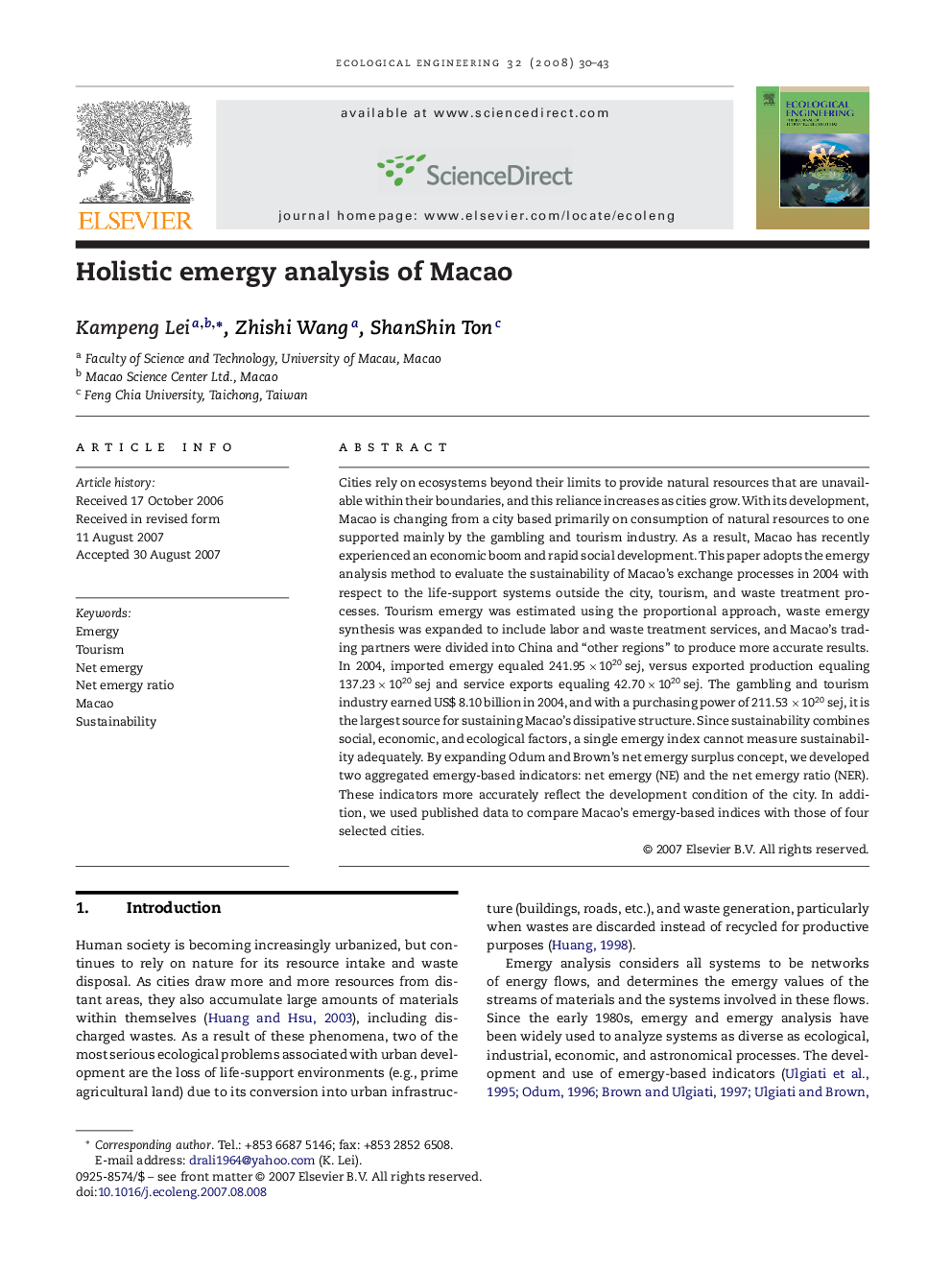| Article ID | Journal | Published Year | Pages | File Type |
|---|---|---|---|---|
| 4390856 | Ecological Engineering | 2008 | 14 Pages |
Cities rely on ecosystems beyond their limits to provide natural resources that are unavailable within their boundaries, and this reliance increases as cities grow. With its development, Macao is changing from a city based primarily on consumption of natural resources to one supported mainly by the gambling and tourism industry. As a result, Macao has recently experienced an economic boom and rapid social development. This paper adopts the emergy analysis method to evaluate the sustainability of Macao's exchange processes in 2004 with respect to the life-support systems outside the city, tourism, and waste treatment processes. Tourism emergy was estimated using the proportional approach, waste emergy synthesis was expanded to include labor and waste treatment services, and Macao's trading partners were divided into China and “other regions” to produce more accurate results. In 2004, imported emergy equaled 241.95 × 1020 sej, versus exported production equaling 137.23 × 1020 sej and service exports equaling 42.70 × 1020 sej. The gambling and tourism industry earned US$ 8.10 billion in 2004, and with a purchasing power of 211.53 × 1020 sej, it is the largest source for sustaining Macao's dissipative structure. Since sustainability combines social, economic, and ecological factors, a single emergy index cannot measure sustainability adequately. By expanding Odum and Brown's net emergy surplus concept, we developed two aggregated emergy-based indicators: net emergy (NE) and the net emergy ratio (NER). These indicators more accurately reflect the development condition of the city. In addition, we used published data to compare Macao's emergy-based indices with those of four selected cities.
